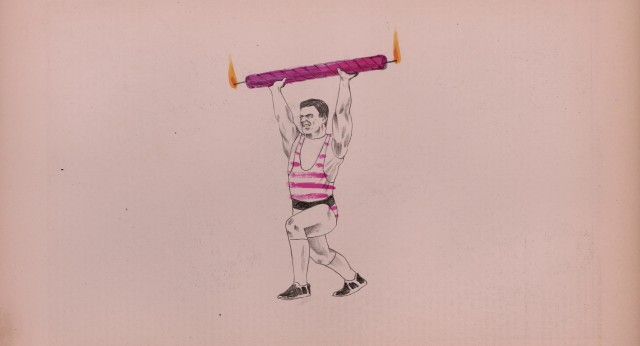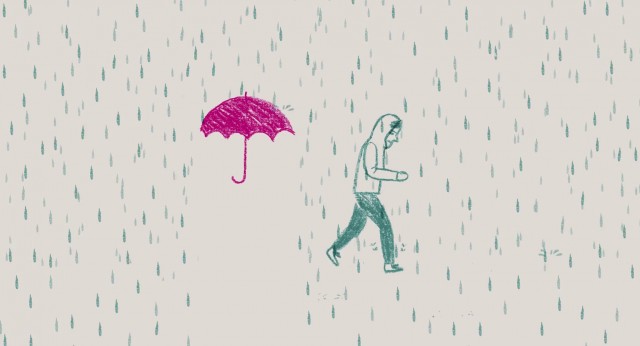Midway through 2021, I woke one morning to find myself shadowed by anxiety. I’m not talking ‘I’ve got a big presentation’ anxiety or even stress caused by any kind of specific situation, just a general feeling of unease. I thought nothing of it until it returned the next day and the next and the next. Anxiety disorders have understandably risen during COVID-19, but they’re difficult to recognise and diagnose and this was very much my issue. When discussing my situation with others, the question of “what’s making you anxious?” would always arise and when I explained that there was “no specific reason”, there was a general lack of understanding. A couple of times I tried to use Amy Seimetz’s brilliant SXSW feature She Dies Tomorrow to help reference this vague and sudden onset of disquiet (adding that it was ok, I didn’t think I was going to die), but turns out not enough people have experienced that film. From now on, I’m just going to show Catherine Lepage’s five-minute animation The Great Malaise.
Hoping that sharing her personal situation might bring some form of comfort, Lepage used her creative juices to develop a series of illustrated books detailing her own thoughts and emotions regarding frustration, stress and depression. The positive reaction to these publications informed Lepage that creating these works wasn’t just beneficial to herself, but also helped others. With that in mind, she decided to take these ideas and create an animated film and with that, The Great Malaise was born.

In stark contrast to the voiceover, the film’s imagery shows ‘the intense anxiety that comes with the quest for perfection’.
Set inside the narrator’s head, as she describes herself, in what feels like a personal ad, the imagery initially provides a visual representation of her words. Then as the film progresses, the voiceover and animation begin to display a contrast, almost like a battle between the image the narrator thinks she should present of herself and the way she really sees herself, internally. It’s a conflict between her aspirations and her reality. Sure, there are moments of calm – a weightlifter’s struggle turns into a yoga pose, the titanic avoids the iceberg when it is literally ripped off the screen – but they’re immediately punctuated with contrasting vignettes – a porcupine surrounding by balloons or a hockey player stuck in the ice. It feels quite an obvious approach now I’m reducing it to words, but it’s undeniably effective and perfectly representative of the experience.
Maintaining the illustrative aesthetic of the books, Lepage’s short employs an eclectic mix of styles to bring her thoughts to the screen. Created through hand-drawn and cut-out animation, the film is a visually layered and complex piece, with each section feeling almost like a standalone short itself and bringing new joy, with either the situation or the style. Using scans of old books to create the distressed textures of the backgrounds, Lepage uses the imperfections of these worn and well-handled publications to remind the viewers of their own flaws and how they should embrace them, instead of trying to hide them. Despite the visual prowess on show in The Great Malaise, its most impactful moment is probably is simplest. As the words ‘I can’t take it anymore’ are scribbled on the screen, accompanied by an ominous drone, it feels like a punch in the gut. No more words from the narrator are needed – that simple text says it all

The Great Malaise is a film that’s both funny and moving, but above all, profoundly human.
“The Great Malaise talks about what happens when our aspirations and goals become a source of anxiety and stress”, Lepage explains in a ‘creative process’ video for the NFB. Before adding that she feels it is vital to “speak about anxiety and depression in order to destigmatise these experiences for those suffering from them”. It’s a noble aim for a short and although Lepage obviously isn’t going to cure these mental health problems, talking about them is often the first step on the road to recovery.
My own personal malaise isn’t quite over, but like many who’ve encountered similar feelings, I’ve used the experience to recalculate priorities and taken a slightly different perspective on life. I’d describe my personal journey as a “work-in-progress” and I hope by featuring films like The Great Malaise, others will know that they are not alone and perhaps, after watching Lepage’s short, they may even understand a little more about themselves. As this isn’t a piece wallowing in self-pity or self-deprecation, this is a celebration of what makes us human, a celebration of what makes us flawed and I love it for that.

 Rob Munday
Rob Munday